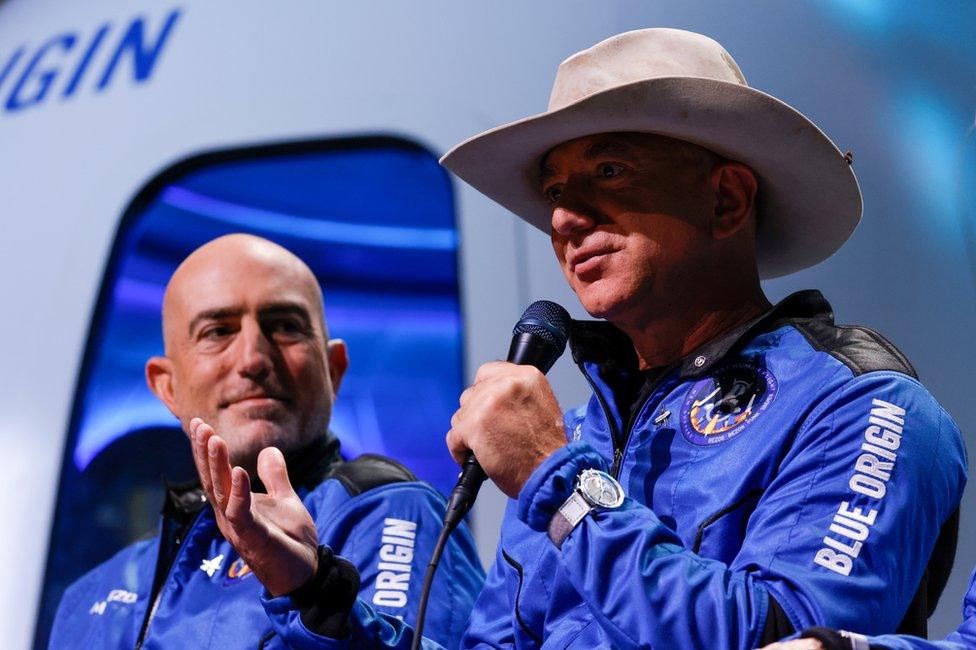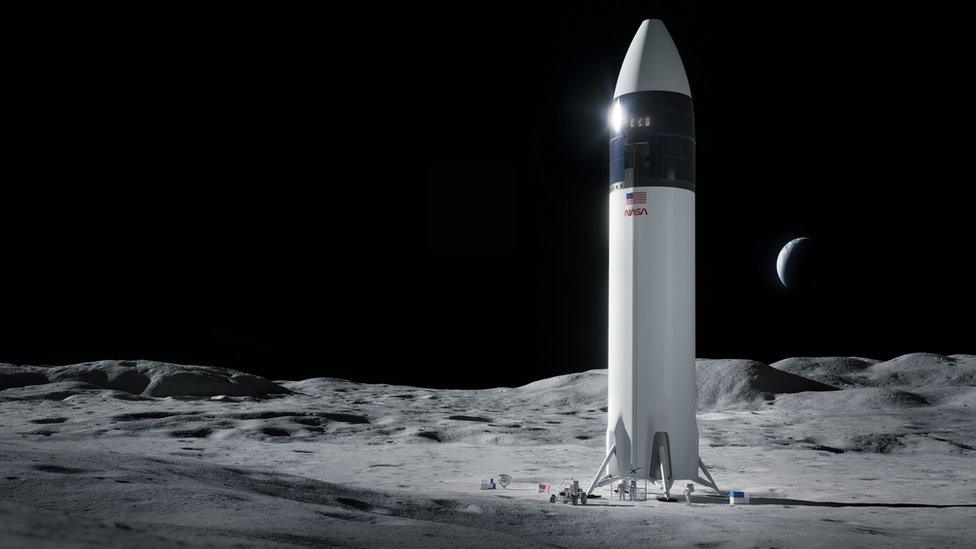Bezos sues Nasa over its deal with Elon Musk's SpaceX
- Published

Mr Bezos flew to space with his brother Mark (L) in July, in the first crewed flight of his New Shepard spacecraft
Jeff Bezos's space firm Blue Origin is suing Nasa over a decision to award a $2.9bn (£2.1bn) lunar lander contract to Elon Musk's SpaceX.
The former Amazon boss's firm said there were "fundamental issues" with the deal, calling it unfair.
The row stems from a decision in April to hand the deal to one company, not two as expected, because of a funding shortfall.
Nasa is yet to comment, but it has the backing of a federal watchdog.
In a court filing on Friday, Blue Origin said it continued to believe that two providers were needed to build the landing system, which will carry astronauts down to the Moon's surface as early as 2024.
It also accused Nasa of "unlawful and improper evaluation" of its proposals during the tender process.
"We firmly believe that the issues identified in this procurement and its outcomes must be addressed to restore fairness, create competition and ensure a safe return to the Moon for America," Blue Origin said.
At the time of the award, Nasa's human exploration chief, Kathy Lueders, admitted that the space agency's current budget precluded it from selecting two companies. That was after Congress granted it only $850m of the $3.3bn it requested for the project.
Nasa also cited the proven record of orbital missions by Elon Musk's SpaceX firm as a factor in the award. Cost is also thought to have played a role: SpaceX's bid was the lowest-priced by some distance.
In July, Mr Bezos offered to cover up to $2bn of Nasa's costs in order to be reconsidered for the contract, but he was rebuffed.
US watchdog the Government Accountability Office (GAO), meanwhile, rejected a complaint from Blue Origin and defence contractor Dynetic, saying that Nasa had not "acted improperly" in handing the contract to just one firm.
Nasa must file a response to the legal action by 12 October. SpaceX is yet to comment on the lawsuit.
Under its Artemis programme, Nasa hopes to return humans to the moon for the first time since 1972.
In April, Ms Lueders said: "This critical step puts humanity on a path to sustainable lunar exploration and keeps our eyes on missions farther into the solar system, including Mars."
Related topics
- Published26 July 2021

- Published16 April 2021
